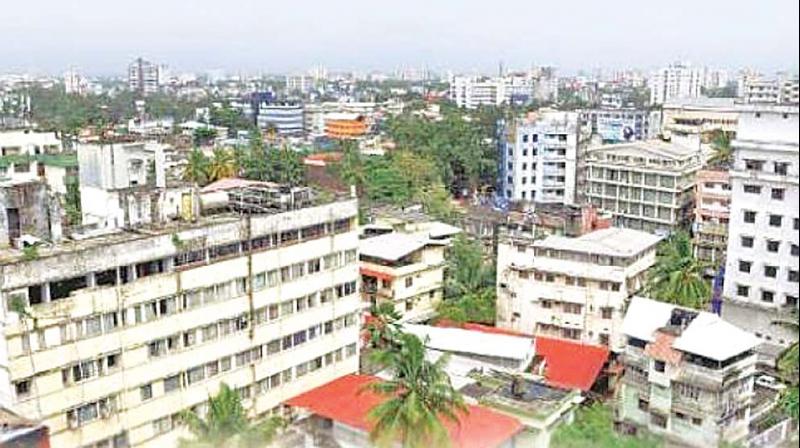Khata-rsis: Betterment fee a boon or escape route?
Collecting a betterment fee will help the BBMP build drains and roads and do periodical asphalting, the official maintains.

“I have been waiting for several years to sell my property in Hulimavu or even get a loan against it. But I am able to do neither as I have only a B khata . If the BBMP issues me an A khata it would be a big help,” says Mr Gangaraju, a senior citizen of the city, whose hopes have risen since the BBMP has suggested amending the Karnataka Land Revenue (KLR) Act 1964 to help it issue A khatas to B khata properties.
For site owners like him, who have a B khathas, building a house is a distant dream even if they happen to be in prime locations as they are denied sanction for the building plan and banks too are wary of issuing loans against such properties that are not legitimate in the civic body’s records.
Nearly four lakh property owners across the city are in this mess either because they or the land developers in question failed to pay the conversion and betterment fee for their sites as required under the law. By amending the Karnataka Land Revenue (KLR) Act, 1964 the BBMP hopes to now collect the betterment fee from these property owners and regularise them, explains a senior revenue official of the civic body.
But the move has not gone done well with everyone as they believe the BBMP is only trying to help people get away with illegalities in the name of mopping up more revenue. Civic activists argue that the agency is trying to find an alternative route to regularize building violations as the Akrama Sakrama scheme introduced for the very reason, is facing legal hurdles.
But dismissing such arguments, the BBMP officer insists it is doing the right thing as it is presently not able to collect property tax from buildings that come up on B khata sites. “As the BBMP does not sanction the building plan for constructions on B khata sites the unauthorised structures do not fall under the tax bracket. So it has sent a proposal to the government to amend the Karnataka Land Revenue (KLR) Act, 1964 to help it collect both the betterment fee and property tax from properties that have not been converted for non- agricultural use. This will help it mop up more revenue and tide over its financial crisis,” he says, arguing that issuing A khata to these properties will also bring in accountability among both the people and officials and limit the unauthorised and haphazard growth of the city.
Moreover, collecting a betterment fee will help the BBMP build drains and roads and do periodical asphalting, the official maintains.
The BBMP has proposed a betterment fee of Rs. 250 per sq. meter for properties in the core of the city comprising 100 wards and Rs. 200 per sq.meter for the remaining wards, which were newly added to it.
‘This scheme will take the city downhill’
The BBMP may be aiming at mopping up at least Rs 1,000 crore from its move to issue A khatas to B khata sites, but its arguments don’t cut ice with civic activists like Mr N S Mukunda of Citizens’ Action Forum, who finds it suspicious that it has come up with the idea when the Akrama Sakrama scheme that also aims to regularise building violations is pending in court.
“It should not have come up with this when the Akrama Sakrama scheme is still pending in court. It will only take the city downhill and provoke some other activist to approach the court again to stall this conversion too,” he says.
As for the civic body’s claim that legitimising B khata sites will help it earn more revenue, he says there are a thousand different ways it can do this instead of regularising illegalities.
“Who asked the BBMP to do away with all the advertisement hoardings in the city ? They could have easily fetched it not less than Rs 5,000 crore if they were regulated and streamlined,” Mr Mukunda argues, lamenting that now everything from the violation of building bylaws to the flouting of rules on setbacks needed for buildings and basement parking, will be legalised with this move of the BBMP.
“This will only set a wrong precedent and upset those who strictly adhere to the law,” he warns.
Is Sakrama different?
Although the Sakrama scheme provides similar relief, there is a difference. The amendment of the KLR Act will mainly apply to vacant sites and collecting property tax from buildings that have come up on them. But the Sakrama scheme applies to the illegal deviations in buildings, allowing regularisation of deviations of upto 25 per cent for residential buildings and upto 20 per cent for commercial.

